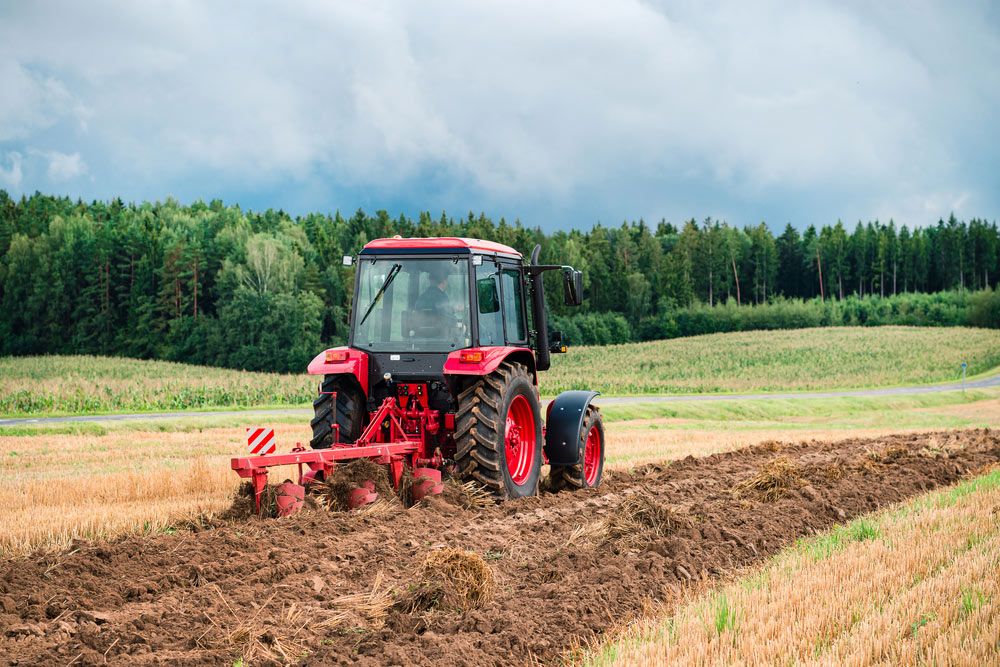
Leasing Vs Buying A Tractor: Pros And Cons
Have you ever found yourself stuck between leasing and buying a tractor? It’s a common dilemma for farmers and business owners. Both options have unique advantages and disadvantages and making the right choice can significantly impact your operations and finances. In this blog, we’ll explore the pros and cons of leasing versus buying a tractor, helping you make an informed decision.
Initial Cost Considerations For Leasing And Buying Tractors
Regarding initial investment, leasing and buying tractors have separate financial impacts, each offering unique benefits and challenges.
Upfront Costs of Leasing
Leasing a tractor generally requires a lower initial outlay. This is because lease agreements often come with minimal or no down payment, making it easier for businesses to manage their cash flow.
Upfront Costs of Buying
On the other hand, purchasing a tractor involves a significant upfront cost. You’ll need to either pay in full or secure financing, which could include a down payment. While this can be a substantial financial commitment, it does mean you own the asset outright from day one.
Long-Term Financial Implications Of Tractor Ownership
Buying a tractor may have higher initial costs, but it can be more economical in the long run. Ownership allows you to build equity in the tractor and after the loan is paid off, the ongoing costs are limited to maintenance, repairs and operational expenses. Conversely, leasing may seem cheaper initially, but lease payments can add up over time and at the end of the lease term, you do not own the asset.
Flexibility And Technology Upgrades
Leasing a tractor can offer significant flexibility, especially for businesses anticipating changes in their equipment needs.
- Easier Upgrades: Leases typically last a few years, allowing you to upgrade to newer models with the latest technology and efficiency improvements.
- Predictable Payments: Lease agreements usually have fixed monthly payments, simplifying budgeting.
- No Depreciation Concerns: Since you don’t own the tractor, you aren’t affected by depreciation and can easily return or upgrade the equipment at the end of the lease term.
Maintenance And Repair Responsibilities
Maintenance and repair responsibilities can vary significantly between owning and leasing a tractor.
When you own a tractor, you are responsible for all maintenance and repair costs. This can include everything from routine servicing to major repairs, which can add up over time. However, owning the tractor gives you complete control over its maintenance schedule and the quality of parts used.
Leasing can sometimes include maintenance packages in the lease agreement. This can alleviate some of the burden of repair costs, but it’s important to read the fine print, as not all leases cover every type of maintenance or repair.
Resale Value And Asset Accumulation
One significant advantage of purchasing a tractor is the potential for asset accumulation and resale value. As an owner, you can sell the tractor when it’s no longer needed, allowing you to recover a portion of your initial investment.
Well-maintained tractors can retain substantial value over time and selling them can provide a significant financial return. Additionally, owning a tractor adds to your list of tangible assets, potentially improving your business’s overall financial health and creditworthiness.
Discover The Best Tractor Parts For Your Needs
The decision between leasing and buying a tractor depends on your business needs and financial situation. At South Burnett Tractor Parts, we provide high-quality parts to meet all your tractor needs. Our extensive range includes tractor engine parts and a variety of spares, catering to different models and ensuring you find the right components for your machinery. Contact us for all your QLD tractor spares and maintain your equipment’s top performance year-round.
